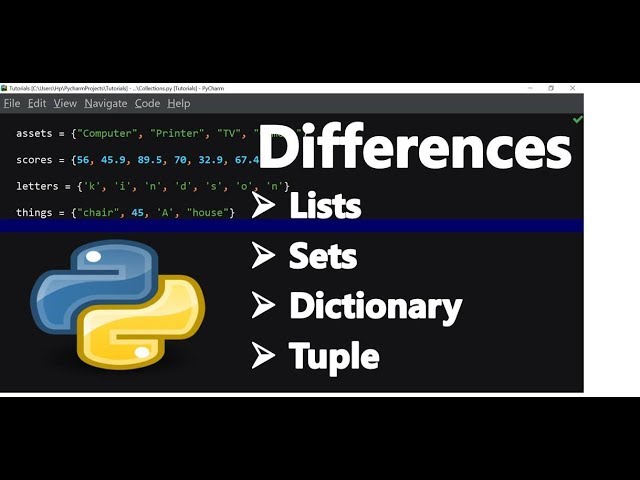Tuple, Set, and Dictionary
نشر بتاريخ 2024-07-16 21:35:59
0
8كيلو بايت

These are all fundamental data structures used to organize information in programming. Here's a breakdown of each:
Tuple:
- Ordered collection of elements, similar to a list.
- Elements can be of different data types (strings, numbers, etc.).
- Immutable: Once created, you cannot change the elements within the tuple.
- Used for representing fixed data like coordinates (x, y) or product details (name, price, stock).
Set:
- Unordered collection of unique elements.
- Elements can be various data types.
- Useful for storing unique items and performing set operations like checking membership or finding differences between sets.
Dictionary:
- Unordered collection of key-value pairs.
- Keys must be unique and immutable (often strings or numbers).
- Values can be any data type.
- Used for storing data where you need to access it by a specific key, like phone numbers in a phonebook (key: name, value: phone number).
Here's a table summarizing the key differences:
| Feature | Tuple | Set | Dictionary |
|---|---|---|---|
| Order | Ordered | Unordered | Unordered |
| Mutability | Immutable | Mutable | Mutable |
| Duplicate Data | Allowed | Not Allowed | Not Allowed (for Keys) |
| Access Method | By index | By membership | By key |
البحث
الأقسام
- Technology
- التعليم
- Business
- Music
- Got talent
- Film
- Politics
- Food
- الألعاب
- Gardening
- Health
- الرئيسية
- Literature
- Networking
- أخرى
- Party
- Religion
- Shopping
- Sports
- Theater
- Wellness
إقرأ المزيد
Keywords, Multiple Output, and Documentation
1. Keywords:
Keywords are reserved words in Python that have special meanings. They cannot...
Setting up a text editor for HTML
Choosing a Text Editor
The first step is to select a suitable text editor. There are numerous...
THE MOUNTAINS IN EAST AFRICA AND THEIR SIZES
Here are some of the prominent mountains in East Africa along with their sizes:
Mount...
Importance of Ethical Behavior to a User
Ethical behavior in the use of technology is crucial for users, as it directly impacts their...
Scenarios of Computer Misuse and Their Effects on Society
Computer misuse can have widespread and serious impacts on society. It encompasses a wide range...



